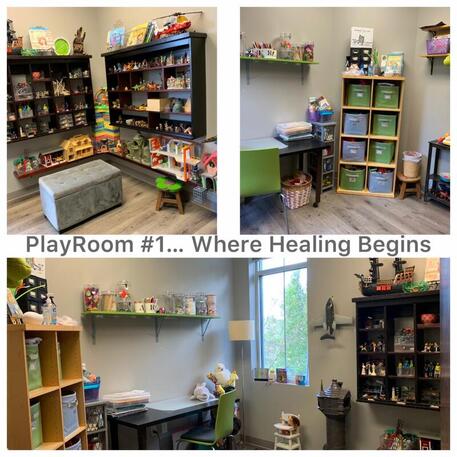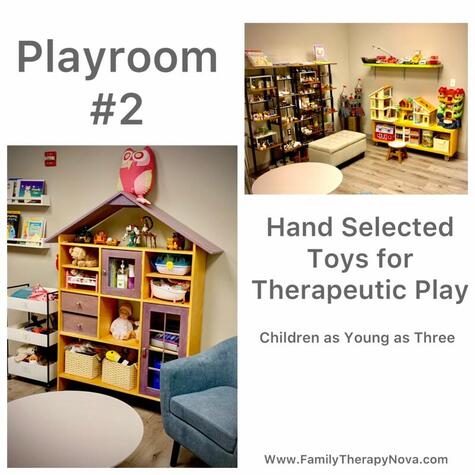The Different Types of Play Therapy

Sometimes talking is just not enough. When treating a child, it is important to think like a child. Play therapy helps the therapist join a child at his/her level. Play is a child's language; this is how s/he communicates.
We use this innocence and learn their language to make communicating about scary issues safe and doable. Below are the different types of "expressive therapy" that are utilized during sessions.
Non-Directive (Child Centered) Play Therapy
While at play, children develop & practice new skills all the while communicating their thoughts and ideas. Non-direct play therapy allows the child the freedom to express himself through self directed play. The therapist then uses learned techniques to assist the child to explore and process issues of concern.
This style of therapy works especially well with younger children starting as young as 3 years of age, or children with processing disabilities. At times parents are taught play therapy techniques and are invited to participate in the treatment as well.
We use this innocence and learn their language to make communicating about scary issues safe and doable. Below are the different types of "expressive therapy" that are utilized during sessions.
Non-Directive (Child Centered) Play Therapy
While at play, children develop & practice new skills all the while communicating their thoughts and ideas. Non-direct play therapy allows the child the freedom to express himself through self directed play. The therapist then uses learned techniques to assist the child to explore and process issues of concern.
This style of therapy works especially well with younger children starting as young as 3 years of age, or children with processing disabilities. At times parents are taught play therapy techniques and are invited to participate in the treatment as well.
Directive (Activity Based) Play Therapy

Direct play therapy utilizes deliberate activities and toys during therapy sessions to create a safe, child-friendly environment for assessment and treatment to take place.
The therapist plans the session by introducing therapeutic activities and by teaching new skills. Treatment is often made more efficient by the use of therapeutic "homework" whereby a child is asked to practice new skills in between sessions.
Sometimes a child is too old to play. In cases like these, we involve therapeutic activities in the session, much like a teacher would do at school, to make the lessons and sessions more fun and interactive. This may look like incorporating a fun therapeutic workbook, playing a therapeutic card game or utilizing the dart board to get conversations flowing.
Age appropriate therapy is a MUST in order to engage children and help them feel safe and secure.
The use of a sand tray, toys, therapeutic books, videos and art are examples of the tools one might find in a play therapy room.